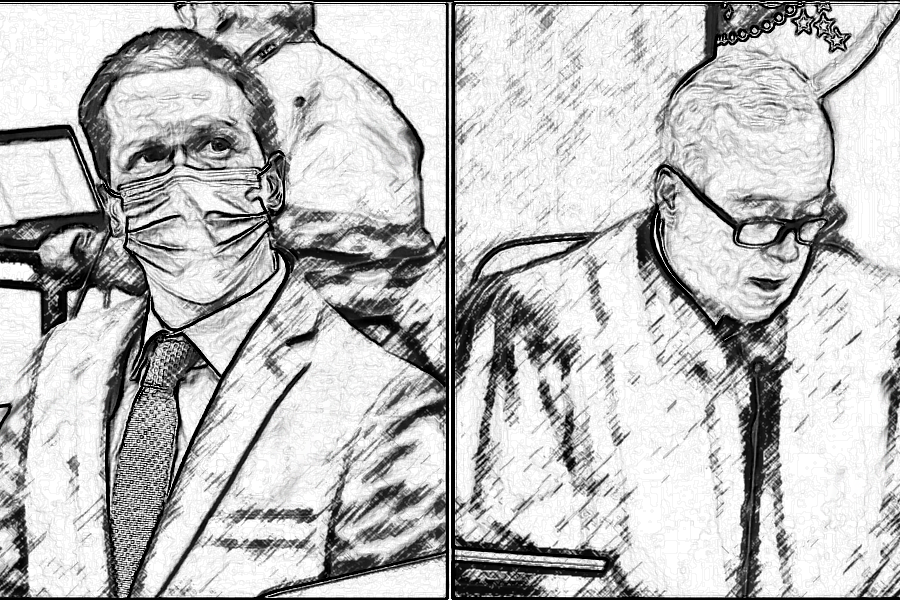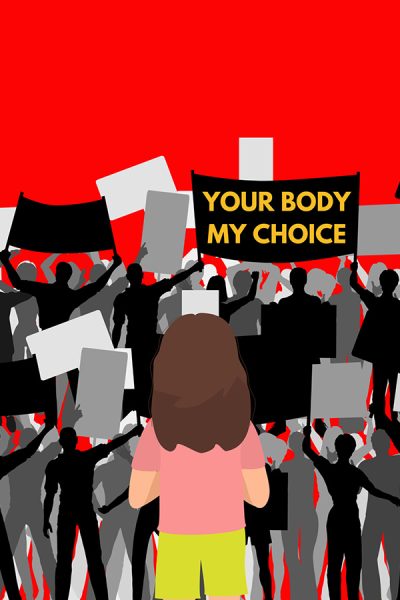Baker University community reflects on Derek Chauvin guilty verdict
Derek Chauvin receives a guilty verdict on murder charges, emphasizing the issues associated with police brutality.
When Minneapolis police officer Derek Chauvin knelt on 46-year-old George Floyd’s neck for nine minutes and 29 seconds, the nation erupted. Floyd pleaded for air underneath Chauvin’s knee, as he repeatedly cried out “I can’t breathe.”
Floyd lost his life that same day, May 25. His death evolved into a climax in the state of systemic racism against black and brown people in America.
Almost a year after Floyd was murdered, the long-awaited trial of Chauvin had arrived.
After three weeks of closely analyzing video footage, hearing witness statements and looking at every inch of evidence, the jury finally came to a verdict.
On Apr. 20, Chauvin was found guilty on all charges, including second-degree unintentional murder, third-degree murder and second-degree manslaughter.
Eric Garner, Breonna Taylor, Tamir Rice and Philando Castile are some of the names of Black people who were killed by police in recent years, none of whom faced federal criminal charges.
Therefore, a sense of relief overcame people who hoped for Chauvin’s conviction. Sophomore Ashanti Minnenhall said she was shocked when she learned of the verdict.
“After my initial shock, I was proud of what everyone accomplished because as we have seen many times before, just because someone is guilty does not mean that they will face punishment for their crimes,” Minnenhall said.
Senior Michael Bolden felt justice was somewhat served.
“This is partial justice,” Bolden said. “Just because Chauvin was found guilty, it will not replace what happened.”
Though Floyd became the face of recent social movements, he is not the first victim.
A chilling parallel can be found between the murder of George Floyd in 2020 and the police beating of Rodney King in 1991.
In both instances, officers participated in the abuse of power and neglected protocol. In both instances, horrific scenes were caught on camera by civilians and released for the world to watch in awe. And in both instances, Black men were brutalized.
On Mar. 3, 1991, King was excessively beaten by a group of Los Angeles police officers after being pulled over on the road and being visibility intoxicated. This event became one of the most known instances of police brutality against Black Americans.
After the officers who beat King were acquitted of all charges in 1992, people were infuriated and began rioting. The “L.A. Riots” lasted five days and resulted in deaths, injuries and property damage.
In 1993, two of the participating officers were sentenced to two and a half years in prison for charges related to the event. About a year later, King was given a $3.8 million settlement.
Baker University Associate Professor & Director of Bands Frank Perez was a high school student living in southern California at the time of the chaos.
As a Hispanic man, Perez has trained himself on how to interact with police officers to eliminate any room for them to misinterpret his physical movements. Perez can recall both negative experiences with officers, like being stereotyped, and positive experiences, like interacting with friendly officers.
Regardless of individual experiences, there is a broad distrust between people of color and the American systems of policing and criminal justice.
“Sometimes it is challenging to trust the system,” Perez said. “There is always a little bit of doubt.”
Minnenhall believes removing judgement is an everyday action people can take to dismantle racism.
“Everyone has an idea of how people should behave, but not everyone fits that mold,” Minnenhall said. “This is where inferiority and superiority complexes stem from. If you take away high expectations and tough punishment for those who do not meet them, then you see people as more human and judge them less.”
Today, people continue to feel empowered to call out U.S. leaders and protest racial injustice in all forms to emphasize the work that still needs to be done. Nonetheless, Chauvin being convicted of murder provided a sense of hope and was a step toward overall police accountability.

Maya is the News Editor for the Baker Orange. She is a senior from Lawrence, Kan. and is a mass media major. On-campus, she is a member of the women’s...










